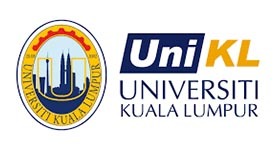Forensic Science Course in Malaysia : Complete Guide for International Students

- Home
- Specialization
- Forensic Science
Overview
Studying Forensic Science in Malaysia offers international students an excellent opportunity to delve into the science of crime investigation, laboratory techniques, and legal practices. Malaysian institutions provide comprehensive forensic science programs at the diploma, undergraduate, and postgraduate levels, allowing students to select a pathway suited to their career ambitions. Tuition fees for these programs are generally affordable, ranging from approximately USD 3,000 to USD 10,000 annually, depending on the institution and program level.
Malaysia is home to top-ranked universities, including Universiti Malaya (UM), Universiti Kebangsaan Malaysia (UKM), and Universiti Sains Malaysia (USM), all of which provide high-quality forensic science courses equipped with modern facilities and advanced research opportunities. Graduates can anticipate competitive starting salaries in the field, ranging from USD 12,000 to USD 20,000 per year, with growth potential as they gain experience and specialization.
Why Forensic Science course in Malaysia
There are many compelling reasons to study Forensic Science in Malaysia. The country offers high-quality education, affordable tuition fees, and excellent career prospects for graduates. Malaysia’s forensic science programs emphasize hands-on learning, laboratory skills, and cutting-edge research, making graduates well-prepared for careers in criminal investigation, law enforcement, and laboratory analysis. Additionally, Malaysia’s multicultural environment and welcoming international community provide a comfortable setting for students from various countries.
Top Malaysian universities offering Forensic Science programs include Universiti Malaya (UM), Universiti Kebangsaan Malaysia (UKM), and Universiti Sains Malaysia (USM). Universiti Malaya is located in Kuala Lumpur, the country’s vibrant capital city. Universiti Kebangsaan Malaysia is based in Bangi, Selangor, a university town known for its academic atmosphere, while Universiti Sains Malaysia is situated in Penang, a thriving cultural hub.
Most universities require international students to demonstrate English proficiency for admission into forensic science programs. The typical requirements include a minimum IELTS score of 5.5–6.5 or an equivalent TOEFL score, depending on the institution and program level. These requirements ensure that students can effectively engage in coursework and research in an English-speaking academic environment.
International students studying Forensic Science course in Malaysia
Malaysia is an attractive destination for international students pursuing Forensic Science, offering quality education, affordable tuition, English-medium instruction, and a multicultural environment. Students from countries like India, Sri Lanka, and the UAE find Malaysia an ideal place to advance their forensic science careers.
- High-Quality Education
Malaysia’s universities provide rigorous forensic science programs, emphasizing hands-on training and research opportunities. Institutions like Universiti Malaya and Universiti Sains Malaysia are recognized for their advanced labs, experienced faculty, and comprehensive curriculum, ensuring students are well-prepared for careers in forensic science.
- Affordable Tuition Fees
Compared to other study-abroad destinations, Malaysia offers affordable tuition fees without compromising on educational quality. Students can pursue their forensic science degrees with manageable expenses, making it a cost-effective choice for international students.
- English-Medium Instruction
Malaysian universities use English as the medium of instruction, which benefits international students by easing communication and fostering an inclusive academic environment. English proficiency requirements also help ensure that students can actively engage in lectures and coursework.
- Cultural Diversity and Welcoming Environment
Malaysia’s multicultural society provides a unique, inclusive environment where international students feel welcomed. The country's diversity fosters an enriching experience, allowing students to connect with peers from different backgrounds and feel at home while studying abroad.
Living Cost
| Expense Category | Monthly Cost (MYR) |
|---|---|
| Accommodation | RM 700 - RM 1,800 |
| Food & Groceries | RM 450 - RM 900 |
| Transportation | RM 90 - RM 225 |
| Utilities (Electricity, Water, Internet) | RM 135 - RM 270 |
| Study Materials & Books | RM 90 - RM 225 |
| Personal Expenses | RM 225 - RM 450 |
| Health Insurance | RM 70 - RM 135 |
Comparison of Forensic Science Courses in Malaysia vs US and UK
| Criteria | Malaysia | United States | United Kingdom |
|---|---|---|---|
| Tuition Fees (Annual) | RM 15,000 - RM 45,000 (USD 3,000 - USD 10,000) | USD 20,000 - USD 50,000 | GBP 12,000 - GBP 25,000 (USD 15,000 - USD 32,000) |
| Course Duration | 3-4 years (Bachelor’s) | 4 years (Bachelor’s) or 2 years (Master’s) | 3 years (Bachelor’s) or 1 year (Master’s) |
| Language of Instruction | English | English | English |
| Entry Requirements | IELTS 5.5 - 6.5, High School Diploma | IELTS 6.0 - 7.0, High School Diploma/Undergraduate Degree | IELTS 6.0 - 6.5, High School Diploma/Undergraduate Degree |
| Living Costs (Annual) | RM 21,120 - RM 48,060 (USD 4,620 - USD 10,680) | USD 10,000 - USD 20,000 | GBP 10,000 - GBP 15,000 (USD 12,500 - USD 18,700) |
| Top Universities | Universiti Malaya, Universiti Kebangsaan Malaysia, Universiti Sains Malaysia | University of California, Penn State, University of Florida | University of Strathclyde, University of Bradford, University of Central Lancashire |
| Career Opportunities | Crime Labs, Law Enforcement, Private Sector | Law Enforcement, Forensic Labs, Research Institutions | Forensic Science Labs, Police Force, Private Sector |

List of Forensic Science Universities in Malaysia with courses

Courses:
105World Rank:
265Scholarship: Yes
105
Courses:
157World Rank:
580Scholarship: Yes
157
Courses:
39World Rank:
146Scholarship: Yes
39
Courses:
208World Rank:
138Scholarship: Yes
208
Courses:
30World Rank:
1001-1200Scholarship: Yes
30Career Prospects of Forensic Science in Malaysia
Forensic science in Malaysia offers dynamic career prospects due to the field's growing importance in criminal investigations and security. As Malaysia continues to develop its law enforcement capabilities and forensic facilities, the demand for skilled forensic professionals is on the rise. Graduates in forensic science can find rewarding careers across various sectors:
-
Crime Laboratories: Forensic scientists play a critical role in crime labs, analyzing evidence and assisting police in solving cases. Their work often involves DNA analysis, toxicology, and digital forensics.
-
Law Enforcement: Graduates can work with police forces as forensic investigators, helping in criminal investigations and ensuring that evidence is collected and preserved properly.
-
Private Sector: Companies in cybersecurity, insurance, and consulting seek forensic experts to help solve cases involving fraud, cybercrimes, and insurance claims.
-
Academic and Research Institutions: Many forensic science graduates contribute to research and teaching in universities or work in scientific organizations dedicated to advancing forensic methods.
-
Environmental Forensics: Specialists may work in fields related to environmental crimes, including pollution and wildlife trafficking investigations.
TOP Universities in Malaysia
- Universiti Malaya (UM) – Ranked among the top universities in Malaysia, UM offers comprehensive forensic science programs with advanced research facilities.
- Universiti Kebangsaan Malaysia (UKM) – Known for its high-quality education and practical approach, UKM provides strong forensic science courses.
- Universiti Sains Malaysia (USM) – With a focus on science and technology, USM offers specialized forensic science degrees.
- Taylor’s University – Offers modern forensic science programs with state-of-the-art labs and industry connections. These institutions provide quality education and excellent career prospects for graduates.
Education Levels of Forensic Science Course
Diploma in Forensic Science in Malaysia
A Bachelor's in Forensic Science covers criminalistics, forensic biology, forensic chemistry, toxicology, crime scene investigation, and forensic law, combining theory, lab work, and practical training.
- Best Universities: Universiti Sains Malaysia (USM), Taylor’s University, and Universiti Kebangsaan Malaysia (UKM).
- Duration: 2-3 years.
- Intakes: Typically in March, July, and September.
- Entry Requirement: SPM with at least 5 credits, including science subjects.
- Tuition Fee: Approximately RM 15,000 - RM 30,000.
- Syllabus: Subjects like criminalistics, forensic chemistry, crime scene management, and DNA analysis.
- Jobs & Salary: Forensic technicians, crime lab analysts, and legal investigators, with salaries ranging from RM 2,500 to RM 5,000 monthly. High demand in law enforcement and private labs.
Bachelor in Forensic Science in Malaysia
A Bachelor's in Forensic Science covers criminalistics, forensic biology, forensic chemistry, toxicology, crime scene investigation, and forensic law, combining theory, lab work, and practical training.
- Best Universities: Top universities include Universiti Malaya (UM), Universiti Kebangsaan Malaysia (UKM), and Universiti Sains Malaysia (USM).
- Duration: Typically 3 to 4 years.
- Intakes: Intakes are usually in March, July, and September.
- Entry Requirements: 5 credits in SPM or equivalent, with subjects like Science, Mathematics, and English.
- Tuition Fees: Fees range from RM 25,000 to RM 45,000 annually.
- Syllabus: Includes criminalistics, forensic chemistry, DNA analysis, toxicology, crime scene management, and forensic law, along with practical training.
- Jobs for Graduates: Graduates can work as forensic lab technicians, crime scene investigators, and forensic toxicologists, with salaries ranging from RM 3,500 to RM 7,000 per month.
Master in Forensic Science in Malaysia
A Master’s in Forensic Science covers criminalistics, forensic pathology, toxicology, DNA analysis, digital forensics, and forensic anthropology, focusing on advanced forensic techniques and investigations.
- Best Universities:Top universities include Universiti Malaya (UM), Universiti Kebangsaan Malaysia (UKM), and Universiti Sains Malaysia (USM).
- Duration:Typically 1 to 2 years.
- Intakes: Usually in March, July, and September.
- Entry Requirements: A Bachelor’s degree in Forensic Science or related fields with a minimum CGPA of 2.50. English proficiency tests like IELTS/TOEFL are required for international students.
- Tuition Fees: Range from RM 30,000 to RM 60,000 for the entire program.
- Syllabus: Includes advanced topics like forensic pathology, toxicology, digital forensics, crime scene investigation, and forensic psychology, along with a research project.
- Jobs for Graduates: Graduates can work as forensic scientists, crime scene investigators, or digital forensics experts. Salaries range from RM 4,000 to RM 10,000 per month.
PhD in Forensic Science in Malaysia
A PhD in Forensic Science focuses on advanced research in specialized areas such as forensic toxicology, forensic pathology, DNA analysis, crime scene investigation, and forensic law. It involves conducting original research, contributing new knowledge to the field, and developing innovative forensic techniques.
- Best Universities : Top universities for a PhD in Forensic Science include Universiti Malaya (UM), Universiti Kebangsaan Malaysia (UKM), and Universiti Sains Malaysia (USM). These universities offer robust research opportunites and expert supervision in the field of forensic science.
- Duration : A PhD in Forensic Science in Malaysia typically takes 3 to 5 years to complete. The program consists of extensive research, regular consultations with supervisors, and the submission of a dissertation based on original findings in forensic science.
- Intakes : PhD programs in Forensic Science generally have two intakes per year, in March and September. Some universities may offer rolling intakes, allowing flexibility for students to start at any time during the academic year.
- Entry Requirements : Applicants must have a Master’s degree in Forensic Science or a related field. A strong academic record, research proposal, and relevant work experience may also be required. Some universities may require proof of English proficiency through IELTS or TOEFL.
- Tuition Fees: The approximate tuition fee for a PhD in Forensic Science in Malaysia ranges from RM 30,000 to RM 60,000 for the entire program. Fees vary based on the university, with public universities offering lower rates compared to private ones.
- Syllabus: PhD students in Forensic Science engage in in-depth research on specialized topics such as **forensic toxicology**, criminalistics, digital forensics, forensic pathology, and crime scene investigation. The program includes research methodology training, data analysis, and academic writing, culminating in a dissertation.
- Jobs for PhD: PhD graduates in Forensic Science can pursue careers in academic research, forensic laboratories, law enforcement agencies, or as forensic consultants. Demand for forensic experts with advanced qualifications is high in academia and specialized research fields. Salaries range from RM 6,000 to RM 12,000 per month, depending on the role and experience.
Application Process for Forensic Science Programs in Malaysia
The procedure for applying to Forensic Science programs in Malaysia for diplomas, such as a bachelor's or master's degree, bachelor's degree, or PhD, usually includes the following steps:
Choose Your Program and University
Research universities that offer Forensic Science programs and select one that is compatible with your goals for career and educational qualifications.
Check Entry Requirements
Make sure you have the required academic standards as well as the English skills requirements to be eligible for the degree program (SPM/STPM for bachelor's degree and bachelor's for master's and master's to get PhD).
Prepare Necessary Documents
The documents required may contain:
Certificates and academic transcripts.
An active travel document (for foreign students).
English tests for language (IELTS/TOEFL).
Curriculum Vitae (CV) required for postgraduate admissions.
Research plan (for Master's and Ph.D. program).
Submit Application
Application forms are typically completed online using the portal for admissions at the university. Apply online and upload the documents required.
Pay Application Fee
Some schools charge an non-refundable application fee. This differs based on the particular institution.
Wait for Admission Decision
Following submission, the institution is going to review the submission. The process of deciding on your application could last a few weeks according to the degree level.
Receive Offer Letter
If you're accepted, you'll be sent an acceptance letter detailing the next steps that include the tuition fee as well as visa applications (for students from abroad).
Apply for a Student Visa
Students from abroad must submit a request for a student visa via the Malaysian Immigration Department or the Education Malaysia Global Services (EMGS) portal following receipt of the letter of offer.
Confirm Enrollment
Make the tuition payment and then confirm your enrollment in order to ensure your spot within the course.
Visa Process for Studying in Malaysia
International Students from abroad who plan to study Forensic Science in Malaysia must be aware of the application procedure. The following is a brief summary of the process:
Receive Offer Letter
- When applying for a visa, you first need to get an official invitation letter from the Malaysian university.
Apply Through EMGS Portal
- Students from all over the world must submit a request for a student visa via the Education Malaysia Global Services (EMGS) portal. This portal facilitates application for visas and offers regular updates.
Submit Required Documents
- It is necessary to create and upload these documents:
- The offer letter copy from the institution.
- Passport (valid for a minimum of twelve months).
- Passport-sized photographs.
Certificates and Academic Transcripts.
- Evidence to prove English proficiency (if appropriate).
- Medical examination report (required for certain applicants).
Pay Visa Processing Fee
- An application fee for processing visas that varies based on the origin country, has to be paid via an EMGS portal.
Receive Visa Approval Letter (VAL)
- After your application has been processed and approved, you'll be issued a Visa Approval Letter (VAL). It's a vital document that is required to be able to enter Malaysia.
Pre-Arrival Medical Checkup
- Certain students might be required to have a medical examination and then submit an official medical certificate prior to traveling to Malaysia.
Travel to Malaysia
- Once you've got the VAL You can now go with the VAL in hand to Malaysia. It is necessary to show the VAL along with other pertinent documents when you arrive at the airport.
Post-Arrival Medical Screening
- Once you have arrived upon arrival in Malaysia after arriving, you will need to undergo an obligatory medical examination at a certified health centre.
Get Student Pass
- Once you've cleared the medical examination After passing the medical screening, the institution will help in getting after passing the medical screening, you will be able to obtain your Student Pass, which is granted through Malaysian Immigration Department. Malaysian Immigration Department. It allows students to remain and continue their studies in Malaysia during the course of your study.
Application Timeline for International Students in Malaysia
| Stage | Timeline | Details |
|---|---|---|
| Research Universities | 6 to 12 months before intake | Research and shortlist universities offering Forensic Science courses. |
| Check Entry Requirements | 6 to 12 months before intake | Ensure you meet the entry requirements, such as academic qualifications. |
| Prepare Documents | 5 to 10 months before intake | Gather necessary documents like academic transcripts, passport, and test scores. |
| Submit Application | 4 to 8 months before intake | Submit your application to the selected universities. |
| Pay Application Fees | Along with application submission | Pay the required application fees as per university guidelines. |
| Scholarship Applications | 3 to 6 months before intake | Apply for scholarships (if available) and submit required documents. |
| Await Admission Decision | 1 to 2 months after application | Wait for the university’s admission decision. |
| Receive Offer Letter | 1 to 2 months after application | Upon acceptance, receive an official offer letter from the university. |
| Apply for Visa | 1 to 2 months before program start | Apply for a student visa after receiving the offer letter. |
| Arrange Accommodation | 1 to 2 months before program start | Secure accommodation, either on-campus or off-campus. |
| Enrollment and Payment | 1 month before program start | Complete enrollment and pay tuition fees. |
| Prepare for Travel | 2 to 4 weeks before program start | Make travel arrangements, book flights, and finalize all documentation. |
| Orientation | 1 to 2 weeks before program start | Attend university orientation to learn about academic and cultural life. |
| Program Start | March, July, September | Start of the Forensic Science course. |
Scholarships for International Students in Forensic Science in Malaysia
1. Malaysia International Scholarship (MIS)
- Overview: The Malaysia International Scholarship (MIS) is a prestigious scholarship offered by the Malaysian government to international students pursuing postgraduate courses, including Forensic Science.
- Details: The MIS covers tuition fees, living allowance, travel expenses, and health insurance. It aims to attract talented students from around the world to pursue higher education in Malaysia. Students who wish to apply must have an excellent academic record and meet specific entry requirements.
- Eligibility: Open to international students who have already completed a Bachelor’s degree or equivalent and plan to pursue Master’s or PhD programs.
2.ASEAN Scholarships for International Students
- Overview: The ASEAN Scholarships are designed to encourage students from ASEAN countries to study in Malaysia. They are available for various undergraduate and postgraduate programs, including Forensic Science.
- Details: The scholarship covers full tuition fees, living allowances, and other student expenses. It aims to strengthen ties among ASEAN countries and provide educational opportunities for regional students. Students from member countries of ASEAN can apply based on academic excellence and financial need.
- Eligibility:Applicants should be from ASEAN member states and meet the academic and English proficiency requirements set by participating Malaysian universities.
3. University-Specific Scholarships
- Overview: Many universities in Malaysia offer their own scholarships for international students pursuing programs like Forensic Science. These scholarships vary by institution.
- Details: Scholarships can cover partial or full tuition fees, and some also offer allowances for living expenses. Forensic Science programs at institutions like Universiti Malaya (UM), Universiti Sains Malaysia (USM), and Universiti Kebangsaan Malaysia (UKM) may offer these scholarships. Eligibility criteria typically include academic merit, financial need, and specific program requirements.
- Eligibility: Open to international students who are enrolled in or planning to enroll in a specific program, such as Forensic Science, at the university offering the scholarship.
4. The World Bank Scholarship Program
- Overview: The World Bank Scholarship Program offers funding for international students from developing countries to study in Malaysia at various educational levels, including forensic sciences.
- Details: The scholarship aims to support students from low-income or developing nations to further their education and contribute to their countries' development. It covers tuition fees, accommodation, and living expenses, as well as round-trip airfare. Students must demonstrate leadership qualities and a commitment to their home country's progress.
- Eligibility: This scholarship is for students from eligible developing countries with an outstanding academic record.
5. Tun Dato’ Seri Zaki Azmi Scholarship
- Overview: This scholarship is awarded by Universiti Sains Malaysia (USM), aiming to support international students pursuing a variety of programs, including Forensic Science.
- Details: The Tun Dato’ Seri Zaki Azmi Scholarship offers partial to full coverage of tuition fees, accommodation, and living allowances. It is a merit-based scholarship awarded to academically outstanding students who are committed to pursuing a career in research or professional fields related to forensic sciences.
- Eligibility: Applicants must demonstrate exceptional academic achievement and meet the entry requirements for the Forensic Science program at USM.
How To Apply
Research Scholarships: Start with a search for scholarships in the institutions that offer Animal Science programs in Malaysia. Numerous top institutions offer scholarship portals.
Be sure to check your eligibility, have all the qualifications for the scholarship, which includes the academic requirements and proficiency in a language.
Create Documents: Collect the necessary documents such as academic transcripts or recommendation letters as well as personal statements.
Submit Applications: Send in your applications for scholarships well in advance of deadlines and follow the rules of each institution.









